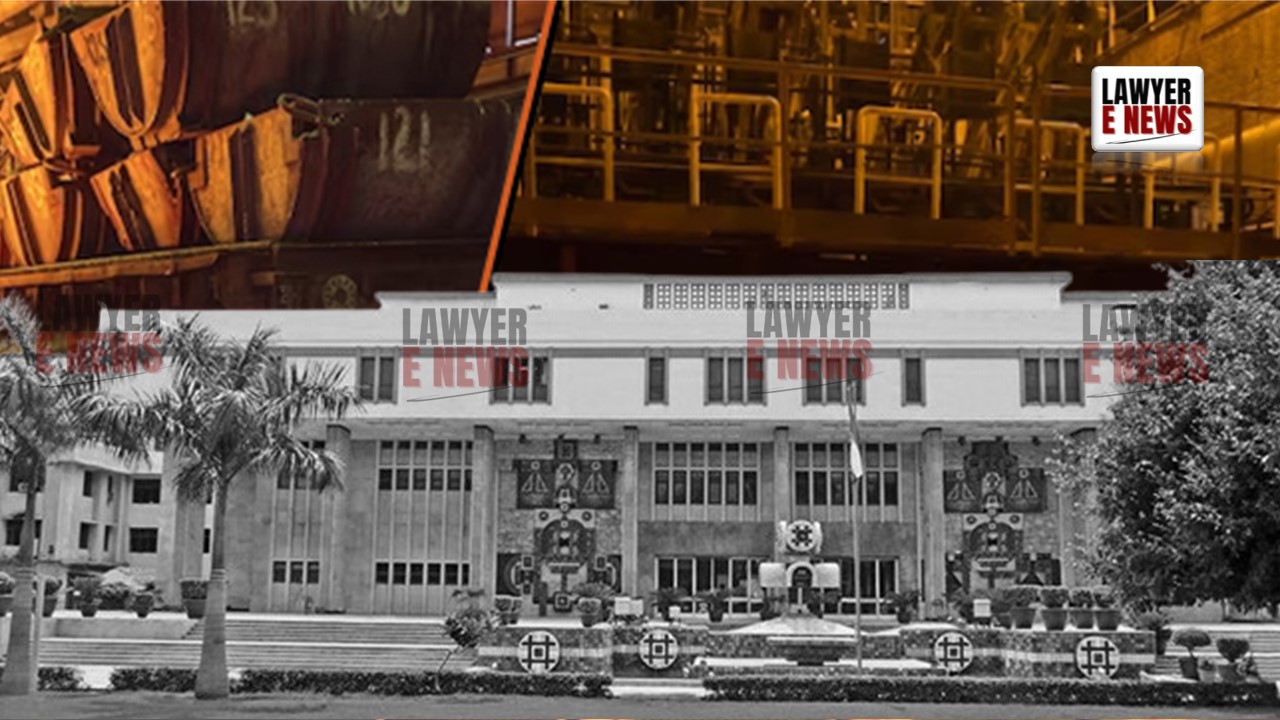-
by Admin
15 February 2026 5:35 AM



IBC’s “Clean Slate” Principle Bars Past Dues as Disqualification from Bidding. In a recent judgment delivered on October 22, 2024, the Delhi High Court, in the case of Union of India vs. OCL Iron and Steel Limited (LPA No. 964 of 2024), dismissed the Union of India’s appeal challenging the eligibility of OCL Iron and Steel Limited to participate in coal mine auctions. The Court upheld that once a resolution plan is approved under the Insolvency and Bankruptcy Code, 2016 (IBC), all prior liabilities and claims, unless specifically included in the plan, are extinguished. This ruling confirms that OCL Iron and Steel Limited, having undergone a Corporate Insolvency Resolution Process (CIRP), could not be disqualified from participating in future coal mine auctions based on alleged past dues.
Extinguishment of Past Liabilities Under IBC
The Union of India, in its appeal, argued that OCL Iron and Steel Limited should be disqualified from coal mine auctions due to the company’s failure to renew a Performance Bank Guarantee (PBG), leading to a demand of ₹92.25 crore. However, the learned Single Judge, in an earlier ruling, had allowed the respondent company to participate in future coal mine auctions, holding that the liabilities arising from the non-renewal of the PBG were extinguished following the approval of OCL's Resolution Plan by the National Company Law Tribunal (NCLT).
The High Court, referring to the Supreme Court’s decision in Ghanashyam Mishra & Sons Private Ltd. vs. Edelweiss Asset Reconstruction Co. Ltd. (2021), reaffirmed that once a Resolution Plan is approved under Section 31 of the IBC, all prior claims that are not part of the approved plan stand extinguished. This "clean slate" principle under the IBC ensures that a successful Resolution Applicant can start afresh, free from the burden of prior liabilities.
Performance Bank Guarantee and Appellant’s Failure to Resubmit Claims
The crux of the Union of India’s case revolved around the non-renewal of the PBG by OCL Iron and Steel Limited, which led to the termination of a Coal Mine Agreement and a demand for ₹92.25 crore. However, the NCLT had already considered and rejected the appellant’s claims during the approval of OCL's Resolution Plan. Despite being granted an opportunity to resubmit its claims in the appropriate form, the Union of India failed to do so. The Court held that the appellant’s failure to properly resubmit its claim as a creditor precluded any further right to recover the dues.
The Court emphasized that since the appellant did not re-submit its claim with the Resolution Professional under the IBC, the claim was not included in the Resolution Plan, and therefore, it was extinguished. This further barred the Union of India from enforcing the claim or using it as grounds to disqualify OCL Iron and Steel Limited from participating in coal mine auctions.
The Union of India’s decision to debar OCL Iron and Steel from participating in future coal mine auctions due to outstanding dues was found to be inconsistent with the principles of the IBC. The respondent argued that all pre-CIRP liabilities were extinguished post-approval of the Resolution Plan, and hence, the disqualification based on outstanding dues was not valid. The Court upheld this contention, ruling that the respondent company was entitled to participate in future coal mine auctions without the burden of any past liabilities. The disqualification order was quashed.
The High Court heavily relied on the Supreme Court’s judgment in Ghanashyam Mishra & Sons Private Ltd. vs. Edelweiss Asset Reconstruction Co. Ltd. (2021), which established that all past dues not included in a Resolution Plan are extinguished after NCLT approval. It also referred to Greater Noida Industrial Development Authority vs. Prabhjit Singh Soni (2024), which reiterated the "clean slate" doctrine under the IBC, ensuring that the successful Resolution Applicant is free from prior claims.
Clean Slate Principle: Once a Resolution Plan is approved by the NCLT, all past claims that are not included in the plan are extinguished, allowing the Resolution Applicant to start afresh.
Extinguishment of Liabilities: The High Court ruled that the Union of India’s claim for non-renewal of the Performance Bank Guarantee was extinguished once the Resolution Plan was approved.
Failure to Resubmit Claims: The appellant’s failure to resubmit its claims in the appropriate form to the Resolution Professional barred its right to enforce those claims.
Disqualification Quashed: The Union of India’s disqualification of OCL Iron and Steel from future coal mine auctions was quashed, allowing the respondent to participate in future bids.
The Delhi High Court’s decision reaffirms the "clean slate" principle under the IBC, ensuring that companies undergoing a CIRP process can emerge free from prior liabilities once their Resolution Plan is approved. This judgment serves as a crucial precedent for future cases involving insolvency and participation in public tenders or auctions, highlighting that pre-CIRP liabilities cannot be used as grounds for disqualification unless explicitly included in the Resolution Plan.
Date of Decision: October 22, 2024
Union of India vs. OCL Iron and Steel Limited
